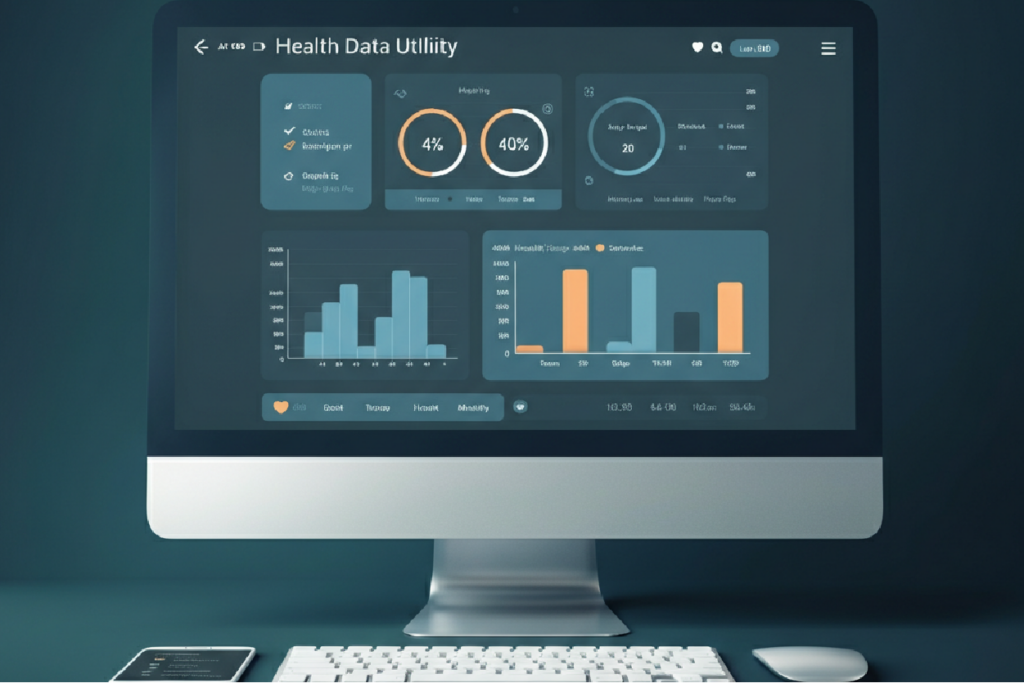
There is a national trend of Health Information Exchanges (HIEs) evolving into Health Data Utilities (HDUs). What is a Health Data Utility? The Consortium for State and Regional Interoperability defines a HDU as “a locally governed, public-private resource providing a source of truth for robust clinical and non-clinical data” to benefit state and other members of the healthcare ecosystem by providing data.
Much of the conceptualization of HDUs was done by Civitas Networks for Health, The Maryland Health Care Commission & CRISP, and the Consortium for State and Regional Interoperability. The HDU is the next phase for HIEs, recognizing that the data in an HIE is a valuable resource that can be utilized beyond just single patient lookup. It can be utilized for quality improvement, population health, research, and combined with other datasets for advanced analysis.
Data is the Lifeblood of an Organization
There is a saying that data is the lifeblood of an organization. Data is critical to identify areas and populations of need, understand and describe current status, evaluate interventions, improve efficiency, inform decisions, discover and adapt to changing conditions, and drive innovation. The COVID pandemic highlighted both the need for data and to identify gaps in data accessibility. The federal government has been working for the past two decades to improve the collection and availability of data to improve health care through initiatives such as the Health Information Technology for Economic and Clinical Health Act (HITECH), the formation of the Office of the National Coordinator (ONC), the 21st Century Cures Act and its Information Blocking provisions, and the Trusted Exchange Framework and Common Agreement (TEFCA) for national health information exchange. HDUs provide the infrastructure for data accessibility.
What HDUs Can Do
Data is critical to identify areas and populations of need, understand and describe current status, evaluate interventions, improve efficiency, inform decisions, discover and adapt to changing conditions, and drive innovation. The COVID pandemic highlighted both the need for data and to identify gaps in data accessibility. The federal government has been working for the past two decades to improve the collection and availability of data to improve health care through initiatives such as the Health Information Technology for Economic and Clinical Health Act (HITECH), the formation of the Office of the National Coordinator (ONC), the 21st Century Cures Act and its Information Blocking provisions, and the Trusted Exchange Framework and Common Agreement (TEFCA) for national health information exchange. HDUs provide the infrastructure for data accessibility.
Necessary Conditions
Necessary conditions for a HDU are considered to be a shared vision, political will/state policy, broad stakeholder participation, multi stakeholder governance, a legal framework, mature use cases, data privacy and security, and secured funding. The American Language Exchange Council has developed model language for a Statewide Health Data Utility Act. They believe that a “state health data utility can help achieve better patient outcomes, and improve overall health and wellbeing of the people of the state. It can also reduce the cost of healthcare services by creating a more seamless, transparent, and modernized approach to sharing health information. The health data utility will comply with all federal and state privacy laws and allow for an opt-out for patients who choose not to share their data.”
In Conclusion
UHIN established the Utah Clinical Health Information Exchange in 2007 to bring together a patient-centric, longitudinal record amongst disparate healthcare systems and organizations. We strive to make data accessible for better costs and better care. Evolving into an HDU, while also balancing patient privacy needs, is the next step.
CIVITAS Call for Public Comment: HDU Framework Supplement Version 1
Civitas Networks for Health invites public comment on the draft HDU Framework Supplement Version 1, which outlines critical updates to the existing Health Data Utility Framework. This supplement highlights actionable strategies for advancing health data governance, interoperability, and equity across states and regions.
Comment Deadline: January 31, 2025
Access the HDU Framework Supplement Version 1:
Comments: Feedback Form or via email to hdu@civitasforhealth.org
